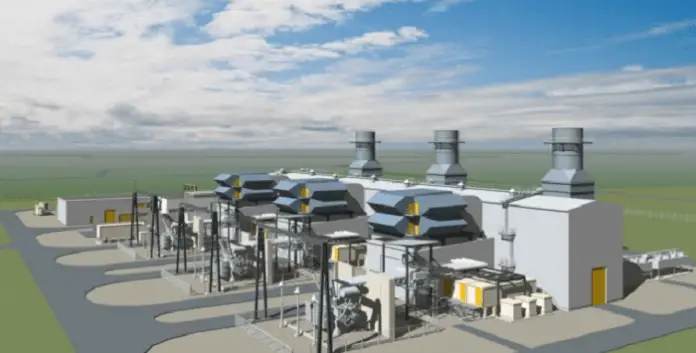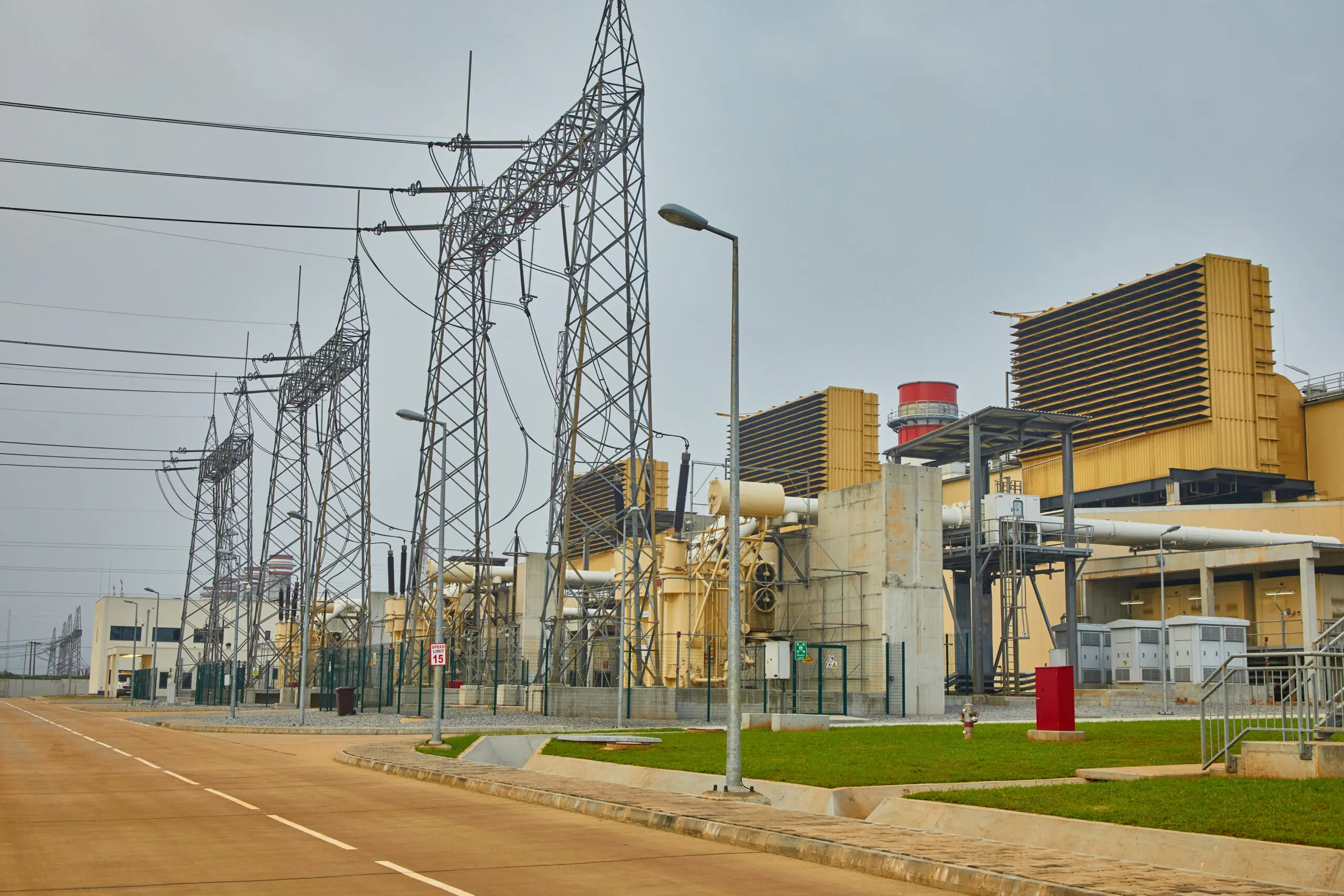The Azura-Edo Power Station was built in exactly 28 months by a team made up of Siemens and Julius Berger, according to the project report. It was completed eight months ahead of its 36-month construction deadline with no lost-time injuries.
The Azura-Edo IPP has positioned itself as a performance standard for other major infrastructure projects all around the African continent as a result of its best-in-class construction performance.
The plant went into operation in the first quarter of 2018, and commercial operations fully began on May 1.
Reported on 14 June 2014
Azura Power to build US$1b Azura-Edo Power Station in Nigeria
Promoters of the US$1bn, 450 MW, Azura- Edo Independent Power Plants are optimistic that construction work on the plant will commence in June this year. Joint Managing Director of Azura Power Holdings, Dr. David Ladipo, confirmed that a total of 14 banks and financial institutions from 8 countries are investing in the project.
Dr. David Ladipo said the Azura-Edo Power Station is the first of a new wave of greenfield project-financed IPPs under development in Nigeria. The project comprises a 450 MW open cycle gas turbine power station, a short transmission line connecting the power plant to a local substation, and a short underground gas pipeline connecting the power plant to the country’s main gas supply. This represents the first phase of a 1, 500 MW power plant facility that is targeted to come online in 2017. Phase two will see the plant capacity reach 670MW.
The World Bank through its Country Director, Maria Francoise Nelly, has said it will provide a risk guarantee to strengthen the Azura- Edo IPP and also provide liquidity in case they fail to pay. Azura Power aims to engage in power generation projects that will add over 3,000MW of power accounting for approximately 20% of Nigeria’s project-installed capacity by 2020.
Aug 2015
World Bank to boost construction of Azura-Edo Power Station project in Nigeria
The Federal Government of Nigeria has signed an agreement with the World Bank Partial Risk Guarantees (PRGs) to boost the construction progress of the 450MW Azura Power Plant in response to the power sector reforms in the country.
The agreement was concluded by the Finance Ministry on behalf of the Federal Government and the Nigerian Bulk Electricity Trading Plc (NBET). The World Bank will provide the guarantees for the construction of Azura power since the project is also being sponsored by several institutions among them the Azura Power West Africa Ltd (Azura), the Standard Chartered Bank, the Rand Merchant Bank, the Standard Bank, JP Morgan, and the Siemens Bank.
However, the Debt Mobilisation Guarantee is US$117m, and US$120m for the Liquidity Guarantee. Besides, 20 international banks and equity finance institutions from 9 different counties have come together and rose over US$900m towards the project.
The Azura-Edo Power Station project includes an open cycle gas turbine power station; a short transmission line linking the power plant to a local substation and a short underground gas pipeline linking the country’s main gas supply and the power plant. The Azura power project is situated on the outskirts of Benin City.
Phase I of the power project is expected to open employment opportunities to over 1000 citizens who will contribute to the completion of the project which is eventually expected to conduct its operational come 2018.
According to Ambassador Godknows Igali, the Ministry of Power Permanent Secretary in Nigeria, NBET also known as the Bulk Trader, is established as a special purpose vehicle for carrying out, under license from NERC, the bulk purchase and resale function contemplated by the 2005 Electric Power Sector Reform Actor (EPSRA).
The company also offers a robust capitalization from the Federal Government as well as the go-between as the hosting agent for World Bank and African Development Bank guarantees in the power sector, given that the company procurers electricity from the generating companies via the Power Purchase Agreements (PPAs) and resells it to the distribution companies through the vesting contracts.
Reported on May 8, 2020
Siemens to supply power components to the Azura –Edo IPP power plant

Siemens has been awarded a contract to supply key power components of the Azura –Edo IPP power plant in the southern part of Nigeria. The Azura power plant has a total generating capacity of 459MW of power. Siemens will collaborate with the local contractor Julius Berger Nigeria PLC in constructing the power plant. The commissioning of the project is scheduled for July 2018.
Siemens has also been awarded a 12-year service contract for the maintenance and service of the power plant. However, Siemens Financial Services (SFS) has been involved in the structuring of the financing since 2012 and is contributing US$50m to fund the development partially, constructing and operating phase I of the project.
Siemens will supply three SGen-100A generators, three SGT5-2000E gas turbines, and an SPPA-T3000 control system for the turbines. The power project will be sited near the town of Benin City, neighboring the main gas pipelines in the country. The power project is part of the planned power plant project by Azura Power West Africa, whereby a total capacity of 1.5 GW will be installed in several phases.
According to Andreas Pistauer, Head of sales of the Southern region, Western & Central Africa within Siemens Power and Gas, the Azura power project will strengthen the collaboration between Siemens and Nigeria.
Managing Director of Azura Power and Amaya Capital Partner, David Ladipo, said that the two companies have a well-deserved reputation for efficiency, precision and end-to-end control of the logistical challenges attendant upon the execution of any large-scale power plant.
Additionally, Siemens had previously received four orders from Nigeria for power plant technology and have their machines installed in different power plants which are, 2 gas turbines of the same model installed in the power block Afam V with generating capacity of 276 MW, 3 SGT5-2000E gas turbines each installed in the Geregu I 414 MW and Geregu II with a generating capacity of 434 MW of power.
So far, Siemens has supplied eleven SGT5-2000E gas turbines with an overall capacity of 1,583 MW to Nigeria.
Jan 2016
Azura Power construction Project in Nigeria gets US$900m boost
Electricity shortages in Nigeria could be a thing of the past following plans to construct an independent power scheme regarded as one of its kind. Equity funders in collaboration with 20 international banks have committed US$900m towards the Azura Power construction Project in Nigeria. The 450MW gas-fired open-cycle power plant will be hosted in Edo State.
The boost comes after the power plant scheme attain a financial close and is now ready for construction in electricity-starved Nigeria. The scheme reached its financial close on 28 December 2015 after a 4 year period of development.
According to the scheme’s co-developer, Aldwych International, a London-based social and economic development company, Azura-Edo is Nigeria’s first true privately developed, greenfield, limited recourse project-financed independent power plant, and it will be a template for similar projects in the country.
Aldwych oversees the project as the construction manager via its wholly-owned subsidiary Aldwych Azura Operations Limited. Julius Berger Nigeria in a joint venture with Siemens is responsible for the construction of the power plant. The project is expected to be operational in 2018.
Nigeria is known to be a major oil and gas exporter in Africa, but millions of its citizens about 93 million do not have access to electricity.
On completion, the power plant will burn Nigeria’s natural gas, of which many billions of cubic feet are now routinely flared off as waste an indication that the country’s power infrastructure is in sore need of rejuvenation.
Construction works on the plant actually began in October 2014 but stalled when then-president Goodluck Jonathan refused lenders’ requests for the government to waive sovereign immunity concerning project risk. That request has already been granted by the sitting President, Muhammadu Buhari, in 2015.
The plant will be constructed on the outskirts of Benin City, near the country’s biggest gas distribution pipeline, on a site accessible to the country’s high-voltage transmission network.
The plant will also sell its power to the Nigerian Bulk Electricity Trading, as well as burn gas supplied under a long-term agreement by the Nigerian oil company, Seplat.
According to the Nigerian National Petroleum Corporation statistics issued in 2014, Nigeria’s oil and gas firms flared nearly 290 billion standard cubic feet of gas, more than 11% of the total gas produced in the country that year.
Other debt financial parties include the International Finance Corporation (part of the World Bank), Rand Merchant Bank, Standard Chartered Bank, First City Monument Bank, Siemens Bank, Standard Bank, FMO, KfW, DEG, Proparco, ICF Debt Pool, Swedfund, CDC, OPIC, and Emerging Africa Infrastructure Fund.
The project company, Azura Power West Africa Limited, is owned by 97.5% Azura-Edo Limited and 2.5% by Edo State Government, which in turn is owned 50% by Amaya Capital together with American Capital Energy & Infrastructure, 30% by Africa Infrastructure Investment Fund 2 Power Holdings, 14% by Aldwych together with the Pan-African Infrastructure Development Fund (PAIDF) 2, and 6% by ARM-Harith Infrastructure Fund.
